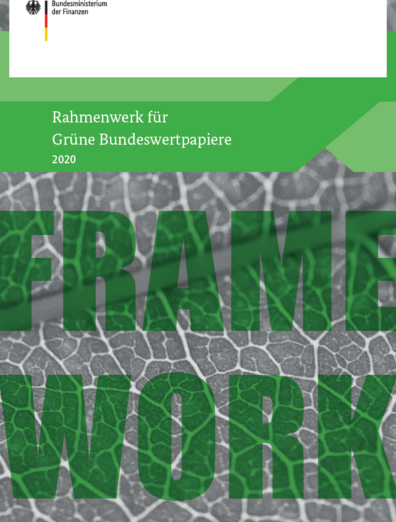
Employees and numerous companions from the worlds of politics and finance look back on 25 years of the finance agency in the festive setting of an anniversary celebration:
For a quarter of a century, the finance agency has been working closely with the Federal Ministry of Finance to efficiently manage the federal government's debt. Time and again, such as during the establishment of the EFSF and most recently in the management of stabilisation measures, the agency's expertise has been called upon. With its experience and expertise, it is also ready to take on future tasks.
Following previous partial sales, the Economic Stabilisation Fund (ESF) is now selling its last remaining shareholding of 9.92 per cent in Deutsche Lufthansa AG in full, which will enable the stabilisation of the company to be successfully completed at an early stage. In June 2020, the WSF and Lufthansa agreed on stabilisation measures of up to € 6 bn. Of this, € 5.7 bn was granted to the airline as silent participations. € 0.3 bn was injected through the purchase of shares, resulting in a shareholding of ESF of about 20 %. In October 2021, the ESF partially participated in Lufthansa's capital increase, at which time the ESF's share was still 14.09 %.
By November 2021, the company had already repaid the silent participations granted in full. The amount of € 306 mn used by the ESF is offset by proceeds from the sale of the equity stake amounting to €1.07 bn. The positive balance from the participation thus amounts to € 760 mn.
The Financial Market Stabilisation Fund (FMS) successfully sells the remaining 3.5 % shareholding in pbb Deutsche Pfandbriefbank AG, thus further increasing the positive balance of the pbb reprivatisation. pbb was created as a result of the restructuring of the former Hypo Real Estate Holding AG (HRE), after the latter had run into difficulties in 2008, threatening its existence, and had to be rescued by the FMS. With the IPO, 80 % of the shares in Deutsche Pfandbriefbank AG were placed in summer 2015. In May 2018, a further 16.5 % of the shares were sold. With the sale of the last shares, the reprivatisation is now complete.

In September 2020, the first green Federal security will be issued in the form of a Green Federal Bond with a term of 10 years. Green Federal bonds are based on the concept of twin bonds, i.e. a borrowing from an existing conventional federal security. The concept ensures the liquidity of the bonds and makes the added value of green issues directly measurable for the first time. The reporting on green Federal securities establishes transparency about green expenditures in the Federal budget.
From July 2020, issues of Federal securities will supplement the refinancing of KfW's special programmes under the Federal government's Corona assistance. The proceeds from the issuance of these Federal securities initially finance the Economic Stabilisation Fund (ESF), which simultaneously passes the proceeds on to KfW as a loan. This process refinances the loans granted independently by KfW under the special programmes.
As a result of the coronavirus pandemic, the Federal government decides to set up a rescue fund for companies in the real economy. An economic stabilisation fund (ESF) is activated, the administration of which is the responsibility of the Finance Agency by virtue of the law establishing an economic stabilisation fund.
From 2019, the refinancing of the deconsolidated environment FMS Wertmanagement (FMS-WM) will be supplemented by means of issues of Federal securities. The proceeds from the issuance of these Federal securities will initially finance the Financial Market Stabilisation Fund (FMS), which will simultaneously pass these proceeds on to the FMS-WM as a loan. On the one hand, this improves the overall settlement result of the FMS-WM, and on the other hand, it strengthens the Federal government's capital market presence.
In 2018, the Finance Agency will be entrusted with the responsibility for the FMSA. This will take place in the course of the reorganisation of the tasks of the Federal Agency for Financial Market Stabilisation (FMSA). The FMSA will continue to exercise independent legal supervision over the two wind-up agencies FMS-Wertmanagement (FMS-WM) and Erste Abwicklungsanstalt (EAA). In contrast, the administration of the Financial Market Stabilisation Fund (FMS), formerly administered by the FMSA, will be fully integrated into the Finance Agency. It includes the Federal government's holdings in Commerzbank AG, Hypo Real Estate Holding AG and Portigon AG.
At the turn of the year 2012/2013, direct sales of Federal securities for private investors will be discontinued. The launch of new Federal saving notes and financing paper, the direct purchase offer for Federal notes and the Federal day bond as well as the custody of newly issued Federal securities will end.
An amendment to §§ 4a to 4k of the "Bundesschuldenwesengesetz" ("BSchuWG") allows the introduction of so-called rescheduling clauses for Federal securities. A corresponding text passage will be included in the terms and conditions of issue as of 1 January 2013 in order to comply with a requirement under the ("European Stability Mechanism") "ESM" Treaty.
The Council of European Finance and Economic Ministers mandates Finance Agency to configure the market presence of the European Financial Stability Facility ("EFSF"). The Finance Agency conducts the first issuance of the EFSF and initiates its liquidity and risk management. The mandate expires at the end of 2013.
The Federal government transfers all tasks of the Federal Securities Administration, the successor to the Federal Debt Administration, to Finance Agency. As a result, in particular, the former private customer business with savong notes is transferred to Finance Agency. BWpV is dissolved on 31 July 2006.
The Federal Ministry of Finance is transferring the distribution of collector coins to Deutsche Post AG (Philately Division) as of 1 January 2006.
Through the "Act on the Reorganisation of the Federal Debt Register Law and the Legal Basis of the Federal Securities Administration" ("Federal Securities Administration Act"), the Federal Debt Administration becomes a higher federal authority under the Federal Ministry of Finance under the new name "Federal Securities Administration" (BWpV). The Federal Financing Committee replaces the Federal Debt Committee. It consists of members of the German Bundestag exclusively and is informed by the Federal Ministry of Finance on all matters of debt management and borrowing by the Federal government.

Foundation of the "Federal Republic of Germany - Finance Agency" ("Finance Agency") with registered office in Berlin by conclusion of the shareholders' agreement. In January 2001 the registered office was moved to Frankfurt am Main.
In a first step, the tasks of borrowing and debt management hitherto performed by the Federal Ministry of Finance are transferred to the Finance Agency.

The authority takes over the tasks of settling the internal old debts according to the "Allgemeinen Kriegsfolgengesetz" (AKG). An office is set up at Platz der Luftbrücke in Berlin-Tempelhof for its implementation. The Federal Debt Administration is assigned tasks from the field of coinage (sales office for collector coins).

With the "Law on the Establishment of a Debt Administration of the United Economic Territory", the "Debt Administration of the United Economic Territory" is established with headquarters in Bad Homburg v.d.H. as the smallest of the bizonal offices (three senior officials).
The settlement of the London Debt Agreement (1953) will later be one of its first major tasks.
The "Law concerning the administration of the national debt system and the formation of a national debt commission" regulates the tasks and the position of the prussian national debt administration within the prussian constitution of 1850. The main administration of the national debt is retained as an independent authority. However, it is incorporated into the Ministry of Finance. Technical control is transferred to a state debt commission.

The "Prussian Central Administration of State Debt" is founded. It is to be "an authority completely separate from the other state and financial administrations". Its establishment follows the issuing of the "Ordinance on the Future Treatment of the Entire State Debt System", which fundamentally reorganises Prussian state finances and is thus part of the financial constitutional reform of the Prussian Chancellor Prince von Hardenberg. In this way he wanted to reorganise the state budget, which had fallen into disarray as a result of the wars of liberation, and strengthen confidence in the state credit. The royal decree regulates for the first time the conditions and procedures for state borrowing, some of which will continue to have an impact on the financial constitutions of the German Empire and the Federal Republic of Germany.
The first president is Christian von Rother. Four members report to him.





